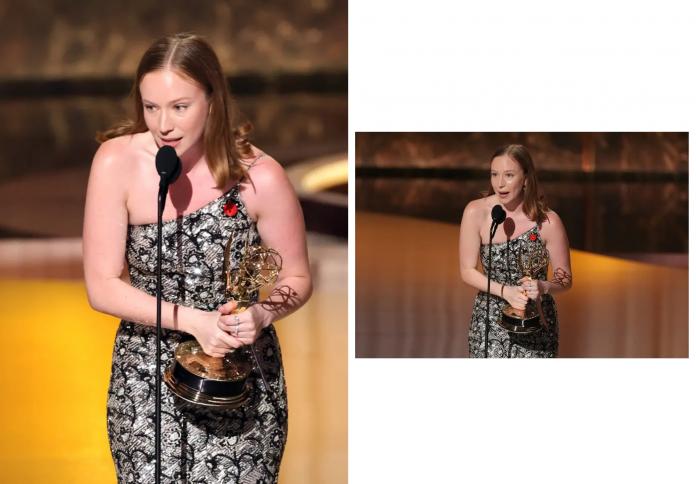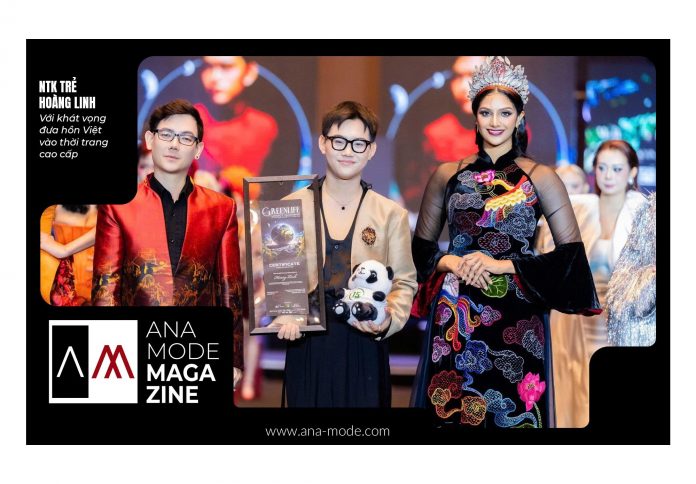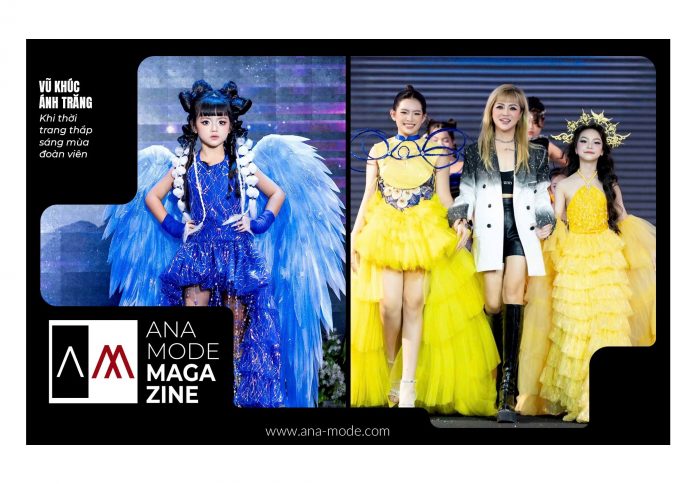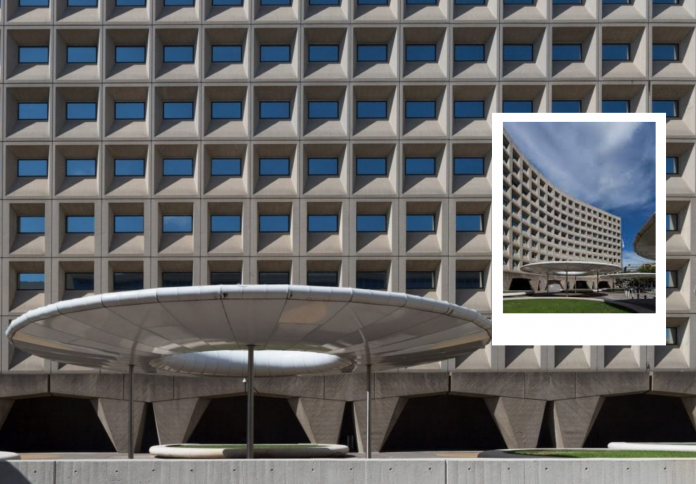Hannah Einbinder, the star of HBO’s ‘Hacks,’ ignited a firestorm of controversy with her politically charged acceptance speech at the 2025 Emmy Awards. Upon receiving the Emmy for Outstanding Supporting Actress in a Comedy Series, Einbinder closed her remarks with an explosive declaration: “Go Birds, f–k ICE and free Palestine.” The dual attack on the U.S. Immigration and Customs Enforcement (ICE) and the call for Palestinian liberation—though partially censored on the live broadcast—immediately went viral, drawing both ferocious condemnation and staunch praise across social media. Her bold move thrust the actress into the centre of a heated debate, reigniting the discussion about the intersection of art and political activism within the highly visible space of a major Hollywood awards ceremony.
An Explosive Political Statement from the Emmy Stage
Donning a stunning one-shoulder Louis Vuitton sequin gown, Hannah Einbinder took the stage at the 77th Primetime Emmy Awards to accept her first career Emmy. However, the culmination of her emotional speech was anything but traditional. After delivering standard acknowledgments, the actress delivered a swift, politicised one-two punch: “I just want to say, finally, go Birds, f–k ICE, and free Palestine.” The reference to the Philadelphia Eagles was quickly overshadowed by the profanity and the incendiary political messaging.

While the “f–k ICE” portion was silenced on the broadcast, the uncensored audio and video rapidly circulated online. This declaration was a clear extension of Einbinder’s public stance, which was also evident in the red Artists4Ceasefire pin she wore, showing support for an immediate ceasefire in Gaza. By coupling a direct critique of a U.S. federal agency (ICE) with a highly divisive international plea, Einbinder ensured her moment of professional triumph would become a global flashpoint, immediately challenging Hollywood’s unwritten rule of neutrality on such a grand scale.
Ferocious Backlash and Accusations of Moral Bankruptcy
The immediate reaction to Einbinder’s remarks was sharply critical, particularly on social media. Many users did not hold back, branding her a “real loser” at the Emmys. Critics, particularly those from the Jewish community, questioned the morality of a Jewish actress advocating for the “free Palestine” movement amid the ongoing conflict, with one person tweeting that she had “no moral compass” and was supporting “terrorists.”

The criticism quickly devolved into attacks on her career longevity. One user stated, “No clue who Hannah is but way to end whatever was left of your career,” while another claimed, “In 10 yrs she will be doing commercials.” Detractors argued that Einbinder had weaponised her platform for “selective outrage,” reducing complex global issues to simplistic slogans and politicising the achievement of the entire cast and crew of Hacks.
Brave Voice for ‘Truth and Justice’
Despite the harsh criticism, Einbinder found a robust base of supporters who lauded her decision to speak out. Many fans and fellow activists viewed her as a “very brave young woman” for using her voice on an issue most of Hollywood was “keeping their mouths shut” about. Supporters praised her for standing on the “right side of history,” framing her words as a powerful declaration “honoring truth and justice while standing for Palestine.”

For this faction, Einbinder’s statement was a necessary act of visibility, using her newfound celebrity to advocate for those less privileged. They argued her actions aligned with a tradition of artists using their platforms to challenge powerful institutions and advocate for human rights, transforming a superficial awards show moment into a genuine act of protest.
Distinguishing Judaism from the State of Israel
In the press room backstage after the ceremony, Einbinder elaborated on the personal and political motivations behind her controversial closing line. She explained that talking about Palestine was “an issue that’s very dear to my heart,” citing friends who are “frontline workers, as doctors right now in the north of Gaza” providing care and setting up schools in refugee camps.

Crucially, Einbinder, who is Jewish, offered a definitive explanation for her stance, stating: “I feel like it is my obligation as a Jewish person to distinguish Jews from the state of Israel, because our religion and our culture is such an important and long-standing… institution that is really separate to this sort of ethno-nationalist state.” She also defended her participation in the Film Workers for Palestine boycott, calling it an “effective tool to create pressure” on powers that be, clarifying that the boycott targets only “institutions that are directly complicit in the genocide,” not individuals.
A Litmus Test for Hollywood Activism
Hannah Einbinder’s Emmy speech will be remembered as a significant cultural moment, serving as a litmus test for contemporary celebrity activism. Her choice highlighted the deepening divide over political expression in Hollywood: on one side, the belief that global platforms must be used to address humanitarian crises, and on the other, the conviction that an awards show is an inappropriate venue for inflammatory and one-sided political rhetoric. Ultimately, Einbinder risked her career stability to make her point, ensuring that her Emmy win will be defined not just by the award itself, but by the firestorm it ignited.










